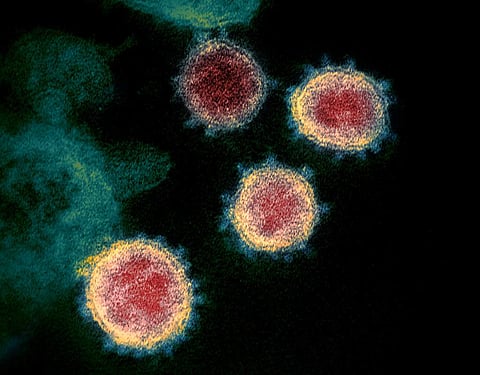

Interesting how for all our progress and technology, all it takes is a microbial infection to bring us down on our knees. So yes, our worst nightmare, and all those apocalyptic series and movies we like to binge-watch, have come true. And if you go by the forwards and viral videos being circulated on 'WhatsApp University' and 'Facebook Institute' it will indeed seem like the world is coming to an end. But it is in times like this that we must avoid all cacophony and lend our ears to experts alone. Ramanan Laxminarayan, Founder and Director of the Center for Disease Dynamics, Economics and Policy (CDDEP) in Washington, DC is one such voice. The drug-resistance economist has advised the World Health Organization and World Bank, created the Immunization Technical Support Unit in India (2012), served on former President Barack Obama's Council of Advisors on Science and Technology’s antimicrobial resistance working group (2014) among many other accomplishments. So we turn to him to understand what we, our country, our public healthcare system and our government can do to combat the pandemic staring us in our faces. Excerpts from an insightful interview:
1. In the next two to three weeks, at what rate can we expect the transmission of the virus to accelerate in India? Do you think India might have to go under lockdown like Italy too?
Going by the experience of other countries, we can expect that transmission will increase significantly in the coming weeks. While we have no direct evidence of community transmission, that is probably an artefact of our low-testing rates and it seems unlikely that the virus is not spreading in the community. At that stage, our options for containment are limited and our best bet would be to mitigate the impact of the epidemic by taking care of the elderly and vulnerable who have uncontrolled hypertension or diabetes or other health conditions. It is hard to lockdown a country the size of India, particularly outside of the cities. And I hope that we would have curbed the epidemic before we get to that stage.
2. You suggested that India should plan on converting stadiums into hospitals. Can you give us more useful tips that could help a country like India to deal with the virus?
India currently has an ICU bed capacity of about 70,000 to 1,00,000. Based on the projected numbers of 30-50 per cent prevalence, at the peak, we may need beds for four to eight million people. We don’t have that capacity and it's time to start preparing right away. The second thing we should do right away is to increase testing. Unless we know who is infected, how can we get them to quarantine to prevent infections to others? The only countries that have successfully contained COVID-19 have provided extensive testing. Third, we should be prepared to act as a united country, public and private sector, and take care of each other. If we adopt the 'every man to themselves' approach, this epidemic can cause serious damage.
3. What should the government be doing to drive home the point about the seriousness of the virus at hand? What are the steps the government should be taking that it isn't already?
Test, test, test. We should be testing at least 10 times the number of people we are today. The number of cases will inevitably go up as a result and people will take this seriously. Why would people take a disease that has infected 125 people and killed three seriously (numbers as reported when the story went to print) in a country where 22,500 people die every day? Let us trust citizens with accurate information and then count on them to act appropriately. There is no other way.
4. What are some unique challenges that India will face in the coming days, keeping in mind our public healthcare system and population?
We have a weak health system compared to other countries of similar income. This is a problem even in the best of times. But a challenge of the size of COVID-19 can overwhelm the system.
